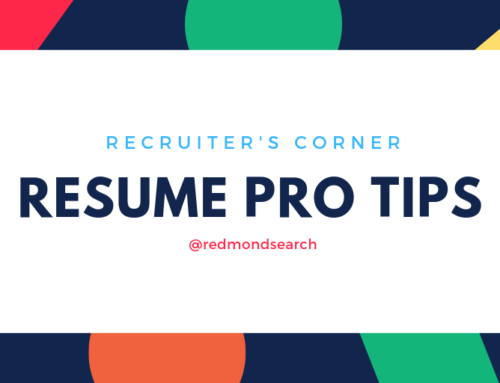Everything that can be counted doesn’t necessarily count; everything that counts cannot necessarily be counted. ~Albert Einstein
This is a post for the recruiters among us, or those interested in what we do. It is relevant to both internal corporate recruiting professionals and third-party search consultants. It is relevant to managers who need to hire. If you’re present on social media sites, you may have some input as well, and we’d like to hear it in the comments.
Today I’d like to discuss this concept of “social recruiting.” This term is meant to describe the act of harnessing the power of web-based social networks to identify and woo talent.
Social media is a powerful force. It reconnects people from far corners of our lives . It makes a very big world seem much smaller and manageable. Some have credited social media with toppling dictatorships and fostering democracy because it so successfully unleashes the voice of a people that heretofore has been suppressed. At its worst, social media provides a distraction we don’t really have time for while simultaneously feeding our voyeuristic tendencies.
 In recruiting, social networking is leveraged as a platform to reach out to people relevant to a career opportunity. Twitter, Facebook, BeKnown, Branch Out, LinkedIn are all places where professionals congregate to own a piece of the web. Employers wisely use these platforms to distribute messages about their hiring needs. It’s fabulous because a user can target his message to a very relevant subset of people. These networks are also used to disseminate information relevant to one’s firm, the industry and the professions. It’s all very useful information.
In recruiting, social networking is leveraged as a platform to reach out to people relevant to a career opportunity. Twitter, Facebook, BeKnown, Branch Out, LinkedIn are all places where professionals congregate to own a piece of the web. Employers wisely use these platforms to distribute messages about their hiring needs. It’s fabulous because a user can target his message to a very relevant subset of people. These networks are also used to disseminate information relevant to one’s firm, the industry and the professions. It’s all very useful information.
However, if you boil it down, social media is just another distribution channel for your marketing message. When people are listening, it can be useful. But how long will the audience listen before it tires of the endless stream of self-serving messages? For how long will your addressees embrace the dopamine drip of perceived “connectedness” before it becomes “too much information?” I think that sometimes we have already arrived at that place.
Some of you may not be old enough to remember, but once upon a time Monster.com was anointed THE platform to end all recruiting woes. In the mid-1990s it was “early adopter” territory. Early adopters were the people I wanted to connect with back then, and it was a great tool for my needs.
But don’t you know that by the time Monster.com reached critical success the #1 search term on the web site was “part time?” This means that the bulk of users were not looking for the jobs I was offering.
Yes, by 2000, Monster.com had jumped the proverbial shark. It became a mass marketing success, but that saturation made it as effective for strategic recruiting as the newspaper employment ads of yore. Add to this the fact that the market quickly became saturated with online job boards which merely replicate postings from other web sites (a practice which endures today), and you have not only a targeting problem but a credibility issue.
What happens when the world discovers the truth about the social networking platforms? The truth – besides the fact that they are a major time suck – is that there is little that is truly “social” about social networking.
Because it is FREE, there is no barrier to entry and everyone can jump aboard. This is good news from a democratic perspective, but not so great for people who use such platforms to distribute marketing (or job opening) messages.
Suddenly, what you already think is an unmanageable influx of information will multiply by tenfold. On social network platforms that are segmented for the professional set, this will be especially salient as the economy heats up. How much longer before end users tune out the incredible volume of self-serving messages littering virtual in-boxes? If you are BUSIER THAN YOU HAVE BEEN IN YEARS do you honestly believe anyone else has the time to opt-in to your marketing?!? How long will it take your followers to realize they have opted into nothing more than your advertising?
Another phenomenon to mention is that the weak economy, coupled with the advent of accessibility, has created a subset of perpetual can-kickers: Everyone will listen to your pitch because everyone wants to have a “Plan B.” Can you tell who these individuals might be? Yes, but unless you’re very skilled in recruiting, you won’t know until after they decline your job offer.
My gut instinct tells me that the more ubiquitous the act of “cyber connecting” becomes, the more important it will be to nurture your relationships in person.
My ability to successfully get the job done for my clients requires personal contact that cannot be replaced by 1’s and 0’s slipping across the ether. The internet can be a good way for us to learn about each other. As Americans, we LOVE its efficiency for communicating, but it is no substitute for breaking bread and building relationships that exist even when we’re unplugged.





Leave A Comment